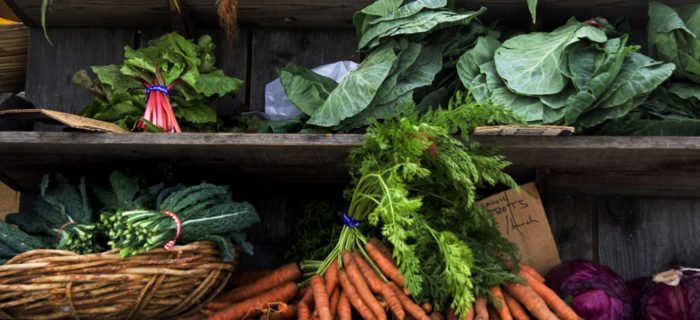Urban Sprouts: Growing Advocates in the Garden
And who will join this standing up
and the ones who stood without sweet company
will sing and sing
back into the mountains and
if necessary
even under the sea
we are the ones we have been waiting for.
-June Jordan
As we film her interview, Ileana stands in front of a mural in the school hallway, framed by the word “Equity” on her left and the face of activist poet June Jordan on her right. Ileana is a program manager for Urban Sprouts, and as she will explain to us, these foundations— equity and activism— guide the work that Urban Sprouts does at this school and others in Southeast San Francisco.
Commitment to racial and class equity drives the work in the garden— a key point that differentiates their work from the work of other organizations. A focus on social injustice and the history of under-resourcing in neighborhoods like Excelsior and Visitacion Valley situates Urban Sprouts’ work in the realm of food justice. As Ileana explains, “for us, it’s not so much that we are training the next generation of farmers… we see the garden as our classroom, as our medium for creating advocates.” First and foremost, Urban Sprouts focuses on community-specific needs. The garden then becomes an incubator for developing youth leaders.
Here at the June Jordan School for Equity in Visitacion Valley, Urban Sprouts has built a thriving garden that student workers maintain along with their instructors, Maria Alejandra Escalante and Sofia Bustamante Guevara. Green onions, kale, and sunflowers shoot up from the raised beds and chickens walk about under foot. It’s a foggy summer day in San Francisco and the summer interns are beginning the work day. They each have different responsibilities and projects they are working on. Delali begins construction on a “bug hotel” meant to attract desirable insects to the garden, Lorrene sketches out a map of the garden to orient visitors, while Najah assesses the garden’s fruit trees, ready to water or apply fertilizer as needed. During the regular school year, students sign up for the Urban Sprouts program as an elective class and learn to garden, cook with fresh produce, and even gain employment experience selling plant starters and produce at farmers markets around the city. The Urban Sprouts program is now the most popular elective at June Jordan.
Tasty and beautiful plants abound in the June Jordan garden, but above all else, Urban Sprouts concerns itself with the cultivation of people. As garden educator Maria puts it, Urban Sprouts is “both metaphorically and literally planting seeds” with the school’s youth. Maria and Sofia want youth to think critically about why their food matters at a personal and community level. The garden offers a unique space in which to cultivate that kind of consciousness. As Sofia explains, “the opportunity that the garden gives you is the opportunity to look at things, to have the time and the space to see how plants work, how insects interact with plants, how things are in a constant interaction.” That attention to process and relationships can then extend beyond the boundary of the garden and enable youth to more critically understand their community and world.
In the process of telling the truth about what you feel or what you see, each of us has to get in touch with himself or herself in a really deep, serious way.
-June Jordan
When explaining the difference between a carrot she grew in the garden and one from the supermarket, student worker Lorrene explodes with excitement: “It tastes so good! It’s different from the things you buy at the market.” Lorrene also conducted an experiment with the eggs from the garden’s chickens. She and her mom cooked a garden egg and a store-bought egg and then tasted each. They noticed a major difference in taste and decided the garden egg was much better. As for her mom’s response to Lorrene’s experiment? “She said I should bring more stuff home from the garden,” Lorrene says, smiling.
Urban Sprouts contextualizes gardening within a larger social landscape— one that includes a food system which perpetuates racial and class inequity. As Najah explained to us while inspecting the garden’s fruit trees, “I do think it’s important for young people to know where their food comes from. It’s important for them to know whether their food has GMOs in it, and if they know where it comes from then they know whether or not it’s good for them to eat. If it comes from a garden like this, then it’s good for them to eat.”
June Jordan is located in what some would characterize as a food desert, so growing fresh, organic fruits and vegetables in the school’s garden both takes on political meaning and serves a pressing need in the community. In the space of the garden, Urban Sprouts merges sustainable growing methods of agroecology with community empowerment.
Stay in the loop with Food First!
Get our independent analysis, research, and other publications you care about to your inbox for free!
Sign up today!As Maria tells us, “agroecology is food equity in many ways” because it teaches people to “respect the strength and energy that comes into the making of our food— both from our natural resources and from our people who work the land.”
To tell the truth is to become beautiful, to begin to love yourself, value yourself. And that’s political, in its most profound way.
-June Jordan


 Help Food First to continue growing an informed, transformative, and flourishing food movement.
Help Food First to continue growing an informed, transformative, and flourishing food movement.




